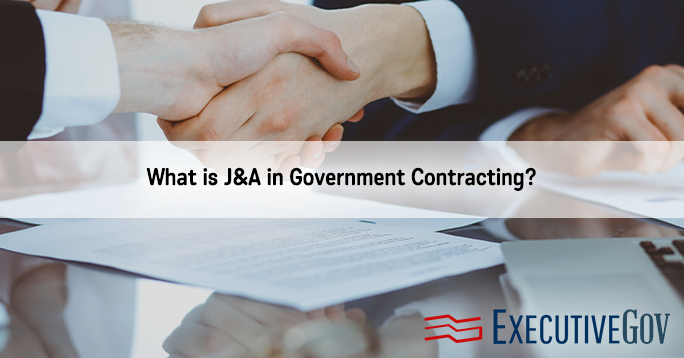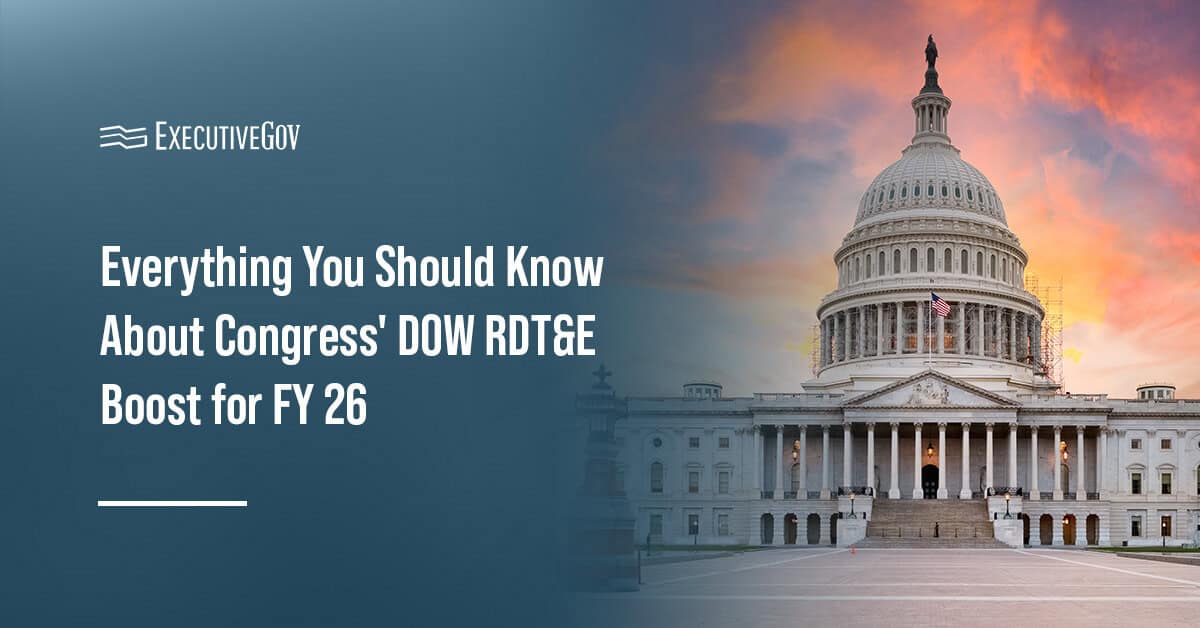Justification and approval, most commonly referred to as J&A, is a critical document used when a contract is awarded to a contractor without the usual competitive process. It guarantees a fair and transparent procurement process for sole-source contracts.
Learn more about J&A in government contracting, as well as its contents and requirements.
Table of Contents
What Is J&A in Government Contracting?
J&A is a formal document that agencies must prepare when intending to award a sole-source contract without invitations for bids from multiple vendors.
The purpose of a J&A in government contracting is:
- To give an explanation or a justification why competitive bidding is not feasible for a particular contract
- To guarantee that the decision to bypass the competitive process is reviewed and approved in compliance with Federal Acquisition Regulation (FAR) rules
Note that FAR, the primary set of rules governing all federal procurements, mandates that government contracts be generally awarded through full and open competition. Nonetheless, it recognizes the exceptional circumstances where non-competitive awards may be justified, just like J&A.
General J&A Requirements for Sole-Source Contracts
Per FAR 6.303-1, the contracting officer must ensure the following before starting negotiations for a sole-source contract:
- Provide a written explanation detailing why it would be better to skip the competitive bidding to choose a particular company without competition
- Certify that the justification and the decision to use a sole-source contract are valid
- Obtain approval from the appropriate authority within the agency overseeing the procurement
Meanwhile, technical and requirements personnel must provide and certify accurate and complete data supporting recommendations for other than full and open competition.
Specific Requirements for Sole-Source Contracts Over $25 Million under 8(a) Authority
When granting a sole-source contract exceeding $25 million under the 8(a) authority, the contracting officer must:
- Explain in writing why a sole-source contract is necessary, following the guidelines in FAR 6.303-2
- Get approval from the designated official
- Announce or make the justification and related information available to the public as per FAR 6.305
Justifications for Individual and Class Basis
J&A applies to individual contracts or a group of contracts, known as a class basis, but with one exception: contracts under FAR 6.302-7 must always be justified individually. The contracting officer must document each contract action to confirm alignment with class justification.
On the other hand, the justification process allows for some flexibility for contracts falling under FAR 6.302-2. In these cases, justifications can be prepared and approved shortly after the contract has been awarded if preparing them beforehand would cause delays in the acquisition. This approach is advisable only when there are no other viable options available.
What Should Be Included in a Sole-Source J&A Document?

Here’s a breakdown of what should be included in the sole-source J&A document:
- Name of the agency and the contracting activity
- Nature and description of the action being approved
- Supplies or services required by the agency
- Identification of the statutory authority that allows procurement other than full and open competition
- The contractor’s unique qualifications
- Outline of efforts made to solicit offers
- Cost determination
- Proof of market research and its results or the rationale that a market research was not feasible
- Additional facts supporting the choice of sole-source contracts
- List of the sources or vendors interested in the acquisition
- The agency’s statement of the actions to overcome barriers in competition
- Certification by the contracting officer
Content Requirements for Sole-Source 8(a) Contracts Over $25 Million
Meanwhile, a justification for a sole-source 8(a) contract over $25 million must include the following:
- List of the agency’s requirements
- Specification of the statutory provision allowing the agency to skip the competitive bidding procedures
- Reasons why the use of a sole-source contract is the best option for the agency
- Determination of fair and reasonable cost
- Additional matters or requirements from the head of the agency
Contract Justification Approval Process
Approval Process for Justification of Non-Competitive Contracts
Written approval is required when justifying a contract without full and open competition. Here’s an overview of who needs to approve based on the contract amount:
Contracts Up to $700,000
The contracting officer’s certification serves as the necessary approval as mandated by FAR section 6.303-2(b)(12).
However, some agencies may require a higher level of approval, so it’s vital to check agency-specific guidelines.
Contracts Over $700,000 But Under $13.5 Million
The justification for the procuring activity must be approved by the competition advocate, a designated official responsible for promoting competition within the agency.
Contracts Over $13.5 Million But Under $68 Million (or $93 Million for DOD, NASA and the Coast Guard)
The justification must be approved by the head of the procuring activity or a designee. The designee must be a high-ranking official, at least a general or flag officer if an armed forces member.
For civilians, they must be above GS-15 on the General Schedule or comparable positions.
Contracts Over $68 Million (or $93 Million for DOD, NASA and the Coast Guard)
Only the senior procurement executive or the top official responsible for the agency’s procurement activities can approve the justification for the highest-value contracts.
This approval is generally not delegable to ensure direct accountability, except for the undersecretary of Defense for Acquisition, Technology and Logistics.
Approval Process for Public Interest Justifications
When a contract is justified under the “Public Interest” authority (6.302-7), here’s how the approval works:
- The justification is automatically approved once the required determination under FAR 6.302-7(c)(1) is made, regardless of the contract’s dollar amount.
- Written approval is required for multiple contracts in accordance with agency procedures. The level of approval depends on the total estimated value of all contracts in the class, including any options.





